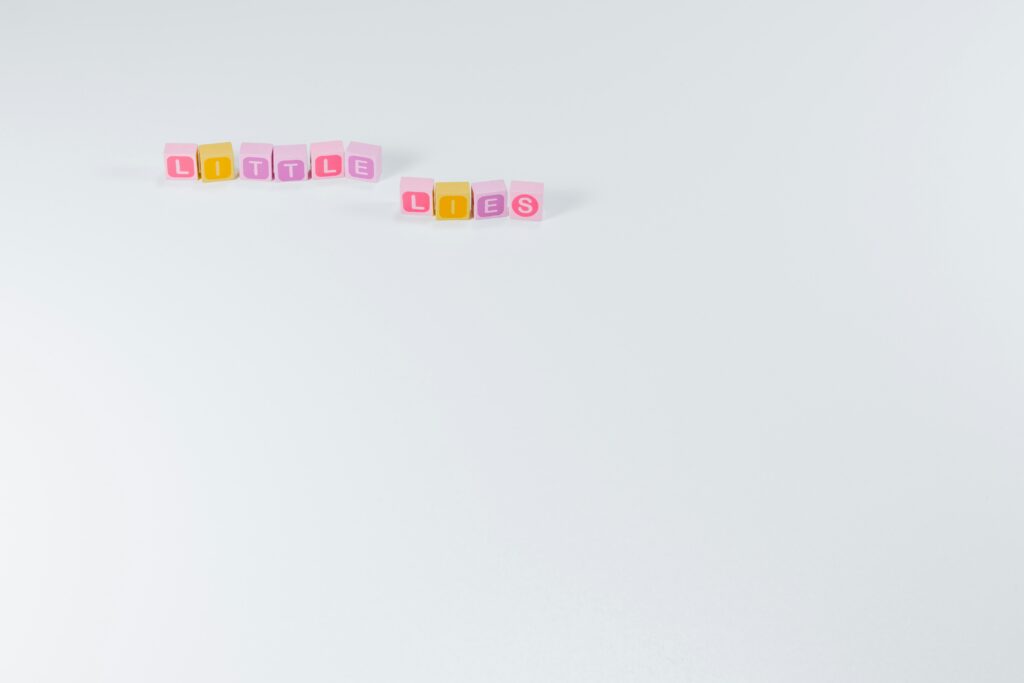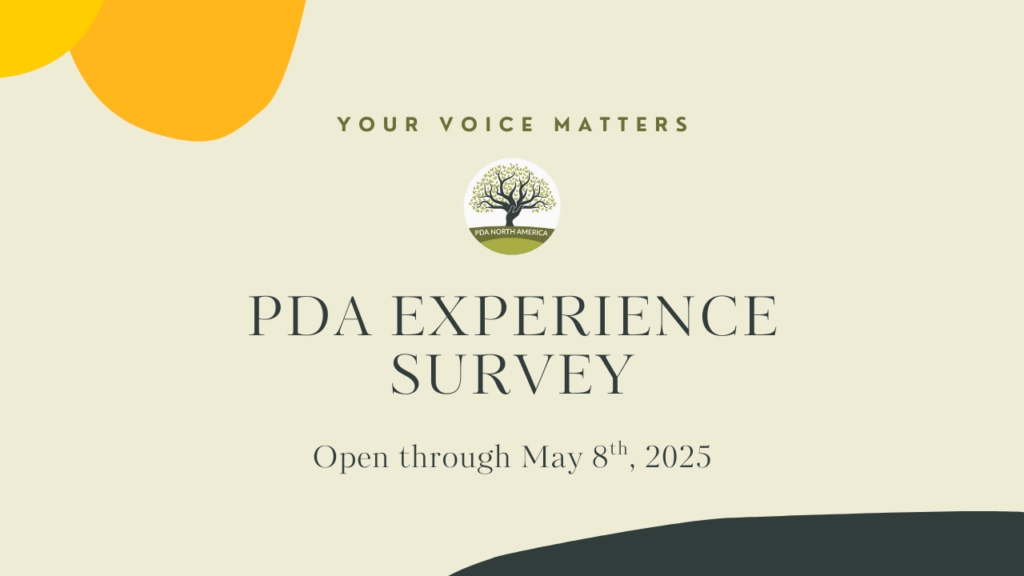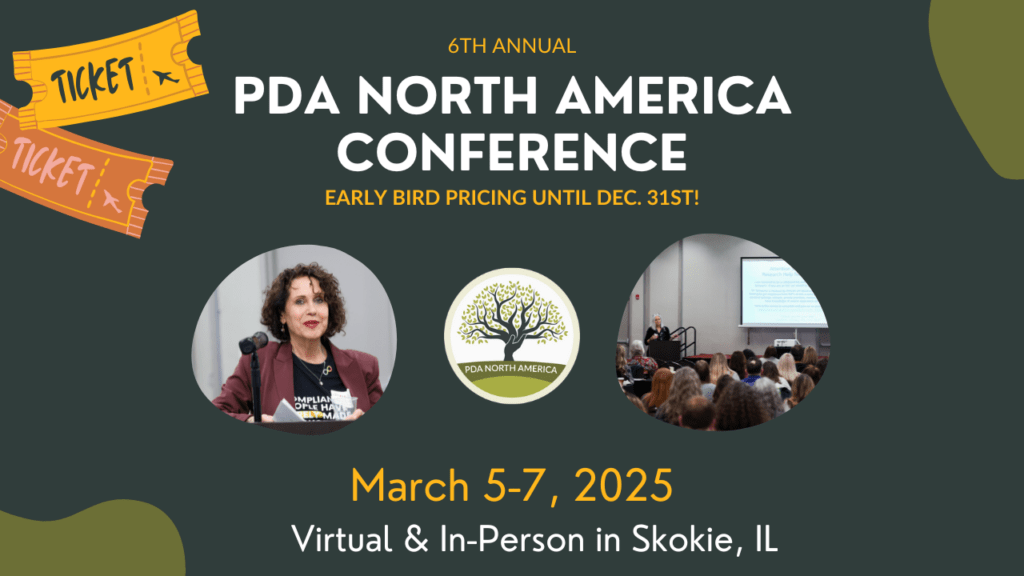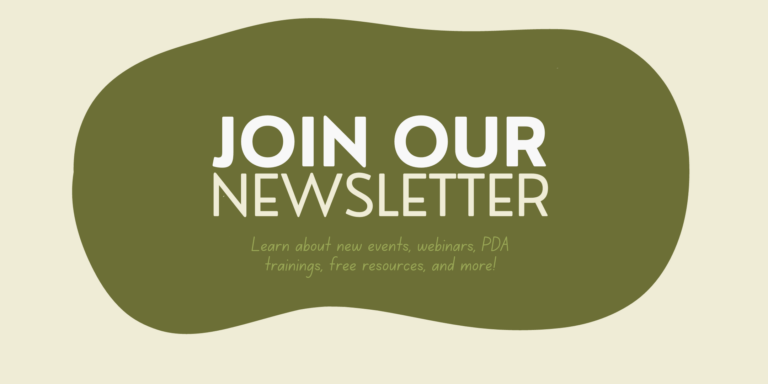By Vinnie Stars, (they / she), white, disabled Autistic PDA’er w ADHD
PDA is a profile on the Autism Spectrum.
PDA’ers are Autistic. PDA is currently researched, articulated with bias and exclusion in the forefront. And in general avoidance of the breadth, logic, value, struggles and celebrations of people and families globally who embody PDA’er life experiences.
CW: Contains profanity.
…
In third grade, I pitched in a softball game.
Did okay, but nothing to write home about.
Later, my brother asked how it went.
“I shut them out,” I said.
No such thing happened.
…
Around the same time, I was to meet a friend at a school event.
The friend’s dad (a friend of our family’s) stopped by my house
beforehand, handed me a $5 bill and gave a simple instruction:
“Give Sean (his son) this $5 when you see him, so he can get a snack.”
“For sure I will,” I told him.
And I was going to.
I liked Sean.
Wanted him to have his snack.
But when asked why I didn’t give the $5 to Sean (shudder) and, further shudder), where the bill had gone,
I had years worth of logical legitimate reasons,
though no words to explain.
…
It’s not who I “was,”
but it was how I lived.
Much of my life’s efforts, until recently, might be summed up by
T.S. Eliot’s words:
“Between the motion and the act falls the shadow.”
I wish I’d known why.
…
The reason PDA’ers lie
(drum roll please)
is that everyone lies.
“Good people”, “bad people”, “educated people”, “people of the
global minority” “people of the global majority”
all tell (or live) a range of:
White lies, gray lies, whoppers,
lies that burn bridges, lose jobs.
Lies that get jobs.
That save face, lives.
Lies spoken out loud, acted upon,
lived out for decades, centuries,
many times regardless of harm,
consequence, reward or in their pursuit.
Lies can be direct, compounded acts of avoidance,
misinterpretations, miscommunications insisted upon.
Our very lies offer insight into truths; In this, may we unite.
…
PDA’ers, Autistic people with less synaptic pruning — a marked
difference for Autistics that when supported can be a strength —
tend to have no choice but to process vast information and little to
no privilege to channel it autonomously.
If / how we can organize our processing in a way that helps us
(or doesn’t put us in direct harm)
and honor others (many of us want to)
depends on some kind of consistent access to our bodies, nervous systems.
And some kind of equitable,
connected, agreed upon process
so our narrative can take off its rickety training wheels
and roll with some “ease”.
For families, it generally takes one adult in our lives to “get it” and
get the bullies to stop blocking the sidewalk.
And communities to create structures for
vulnerable parents who can’t because,
in short, it’s just so much BS.
…
On an individual level, for PDA’ers I’ve known, been, worked with,
the scale of the lying tends to be about the number of foundational needs we hold inside.
(Over time, these compound.)
It tends to be in relation to the amount of transparency (both ours
and yours – you’re welcome) allowed in our environments without
repercussion.
This does not go well in many places as they stand.
So, instead of asking, “Why do PDA’ers lie?” a more practical question might be,
“How often do we sit together in profoundly nonjudgmental spaces?”
…
My lies emerged from an inescapable balancing act:
• Unidentified, unsupported disabilities (speech, motor, reading, nervous system)
• Aberrant experiences from what was described or asked of me
• Unpredictable, fluctuating access to body, senses,,
language, speech (see: unidentified disability)
• Yo-yo like relationship to my narrative
• Balancing external inconsistency and chaos
• Urgency & cut-throat expectations in unforgiving spaces
• Inability to recover and / or neutralize between consequences
• Consequences compounding exponentially without understanding their roots
• Camouflaging mannerisms and coding linguistics
• Scripting words, tones, voices of everyone in your life but you — then speaking them out loud
• Access to safety, basic needs.
When you see distress signs like lying, consider the tight rope dance.
…
If having to live lies hadn’t been so tragic, it might have been hilarious.
Underneath it all, I was a cannonball for transparency.
Now that I survived and the door to engage under pretense has closed,
I work in spaces where we un-cage personal and collective truths,
and the juxtaposition is not beyond me.
…
My husband, Sergio, is a NeuroBiological mirror from several countries away.
I teach him how to climb the jungle-gym of truth-pathology in The United States, as my mom taught me:
“It says no fat,” I would say,
pointing to the package on the grocery store shelf.
“Well, yes,” she would say.
It *says* that, but see this little asterisk over here and the tiny print
that follows…? It’s not actually no-fat.”
Identifying truth requires a lot of un-truthing, it seems; I wonder
how much they have us right where they want us.
…
Over 22 years, I participated in the Mental Health Industrial Complex as a “patient”.
Psychiatrists, therapists, doctors, hospitals, community centers —
looked at me with great suspicion
And
wrote about, assessed, re-raised me,
opined expertly on my ways
with great authority.
With regrettable consequences/
For decades, we – all of us – talked about the way things “were”,
though not once in my time as a “patient”
did an accurate or applicable truth emerge.
Later, I went back and asked about the way things “were” with them.
Somehow, somewhere,
between some cashed check, or next client,
“Between the motion and the act [had fallen] the shadow.”
…
It’s as if they, too, were in complex trauma over society’s
relationship with truth.
It’s as if they, too, know how, why they spent
Sean’s $5, were justified in the logical scaffolding,
and were just as dumbfounded.
.
Each time we ask, “Why do PDA’ers lie?”
we might be better served to wonder,
“Why are we holding vulnerable children to behavioral standards professional adults cannot meet?”
If I’d been a CEO, I might have taken a pay raise.
That’s when the gateways to truth opened:
The inability to “know”.
Not-knowing.
The illness of thinking we know.
And the personal freedom, truths that float to the surface when
we abandon it.
…
For PDA’ers —
What a brave, costly way to have to navigate your days,
vulnerabilities.
Thank you for your service in our liberation process.
I hope you can come over this way…and with shame in the toilet,
we can put an end to this nonsense.
And rather connect, co-regulate and emerge in support of our
personal and collective gorgeous transparency
and build paths that provide safety to do so and…
help.
It’s time.
…
Vinnie Stars
(they / she)
is a white, disabled Autistic PDA’er w ADHD
Consultant, Public Speaker, Strategist
with a pervasive interest to know how your pet is doing.
…
*Vinnie does not condone lying and advocates for spaces of
understanding that yield personal and collective transparency,
responsibility where truths can be honored.
